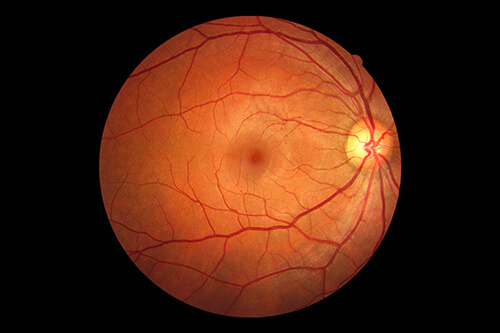
The retina is a multi-layered sensory tissue that lines the back of the eye and connects the visual images that you see to the brain via the optic nerve.
The retina has millions of photoreceptors that capture light rays and convert them into electrical impulses. These impulses actually travel along the optic nerve to the brain where they are turned into images. Any type of disruption in the traveling of these images to the brain results in vision loss or distorted vision.
The central part of the retina, called the “macula” is the most sensitive aspect. If this macula is affected by disease seeing can become very difficult. The macula is responsible for your accuracy vision, allowing you to read or recognize a person.
Conditions & Diseases Treated at Pankratz Eye Institute
- Retinal Vein and Artery Occlusion
- Diabetic Retinopathy
- Age-Related Macular Degeneration
Why Are Retina Eye Exams Important?
Retina is an extension of the brain. Much like the brain tissue, retina cannot regenerate. Diseases of the vitreous and retina can cause permanent blindness, therefore getting regular eye exams is critical for long term eye care. Our Indiana retina eye doctor will spend a lot of time looking through your pupil at the vitreous, retina and other structures located inside the back portion of the eye. In order to adequately see the retina we will need to dilate eyes prior to a retinal examination. First, the pupils are dilated using eye drops (this allows a complete retinal examination). Next, the retina is examined using various instruments that throw a strong light in to the eye. Most patients do not experience any discomfort except for some glare. Early and adequate treatment can stop further damage to the retina and result in better outcome. Retinal eye exams allow early detection and treatment of retinal disorders.
A retinal examination takes longer than most medical or general eye examinations. You can expect to be in our office for a minimum of two hours. When you first arrive, we’ll ask you to fill out a detailed questionnaire about your medical history. Please remember to bring the names of any medications that you are taking – as well as the name, address and phone number of all physicians involved in your care. This information is essential. It’s the only way we can ensure that we do not prescribe treatment that would conflict with your other medications. It’s also needed to coordinate your care with your medical doctors.
Our Retinal Doctor
Blair E. Boehmer, M.D.
Board Certified Ophthalmologist and Retinal Doctor


